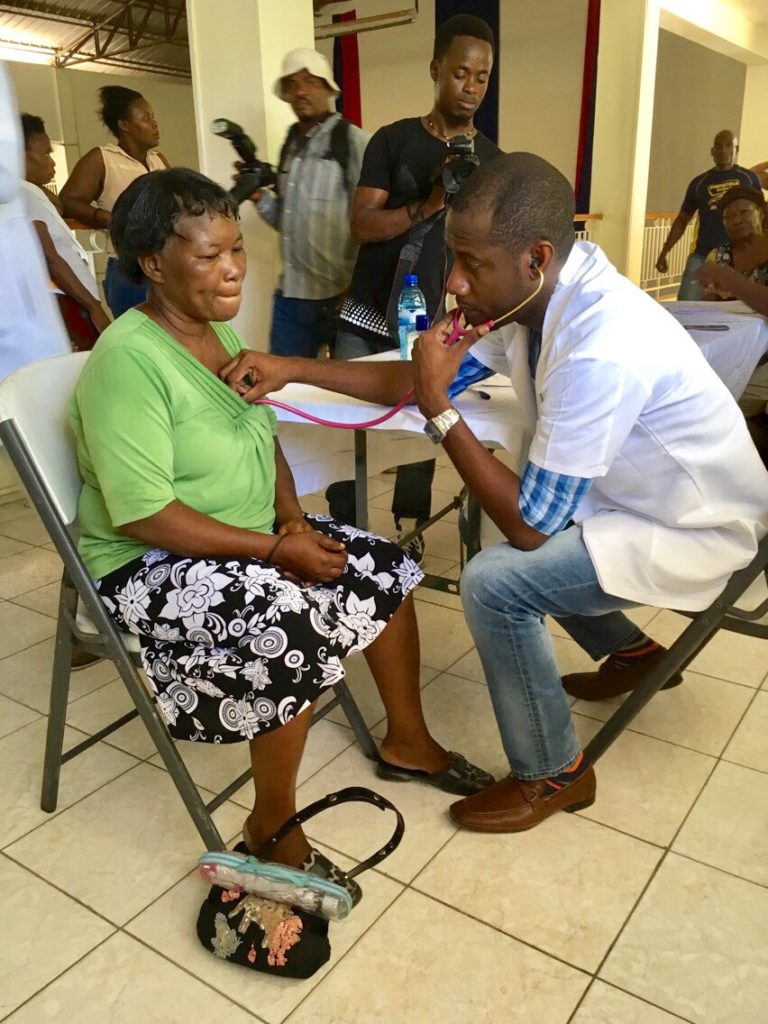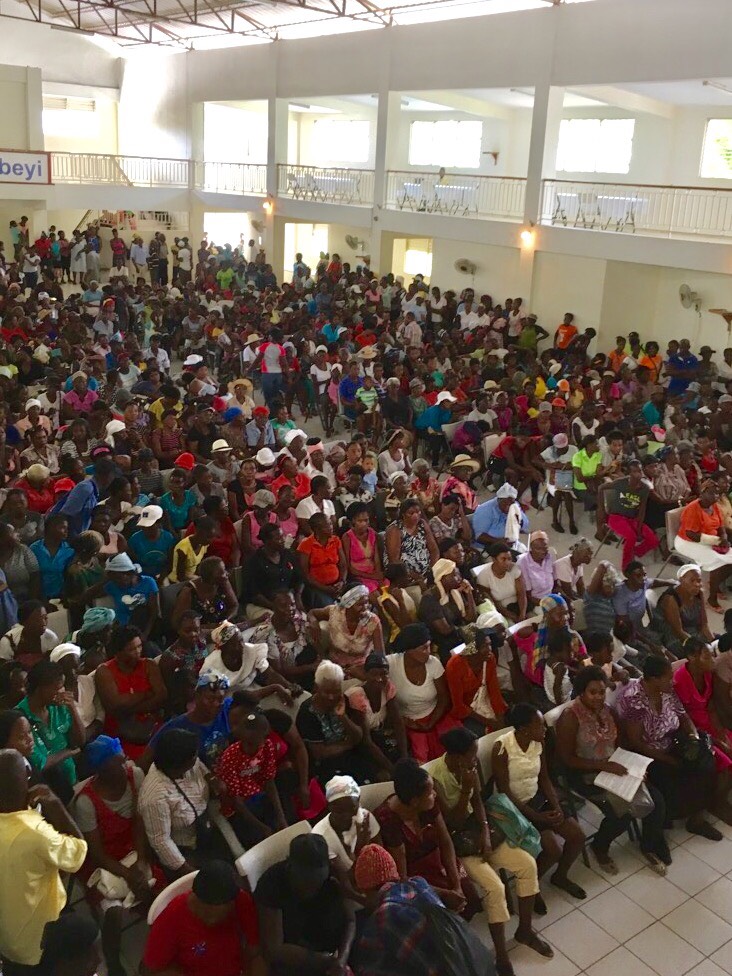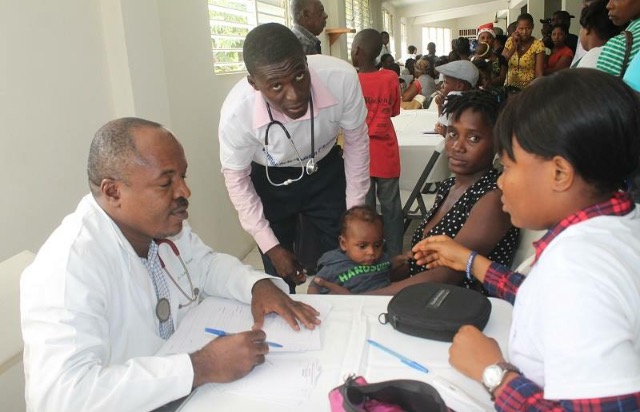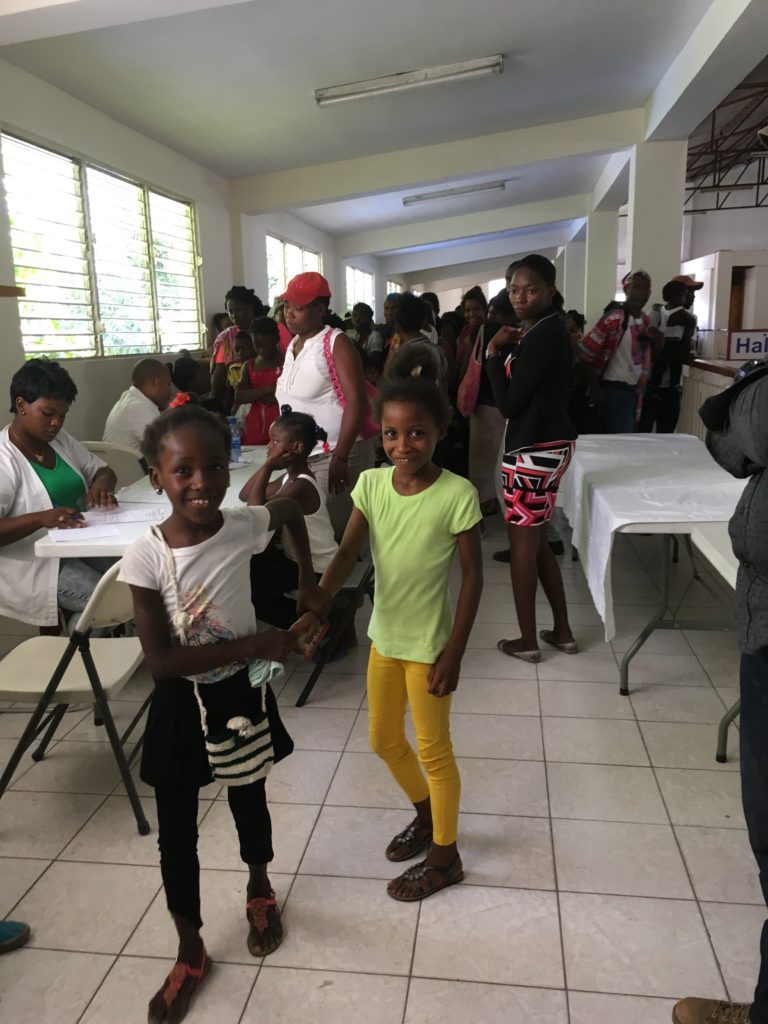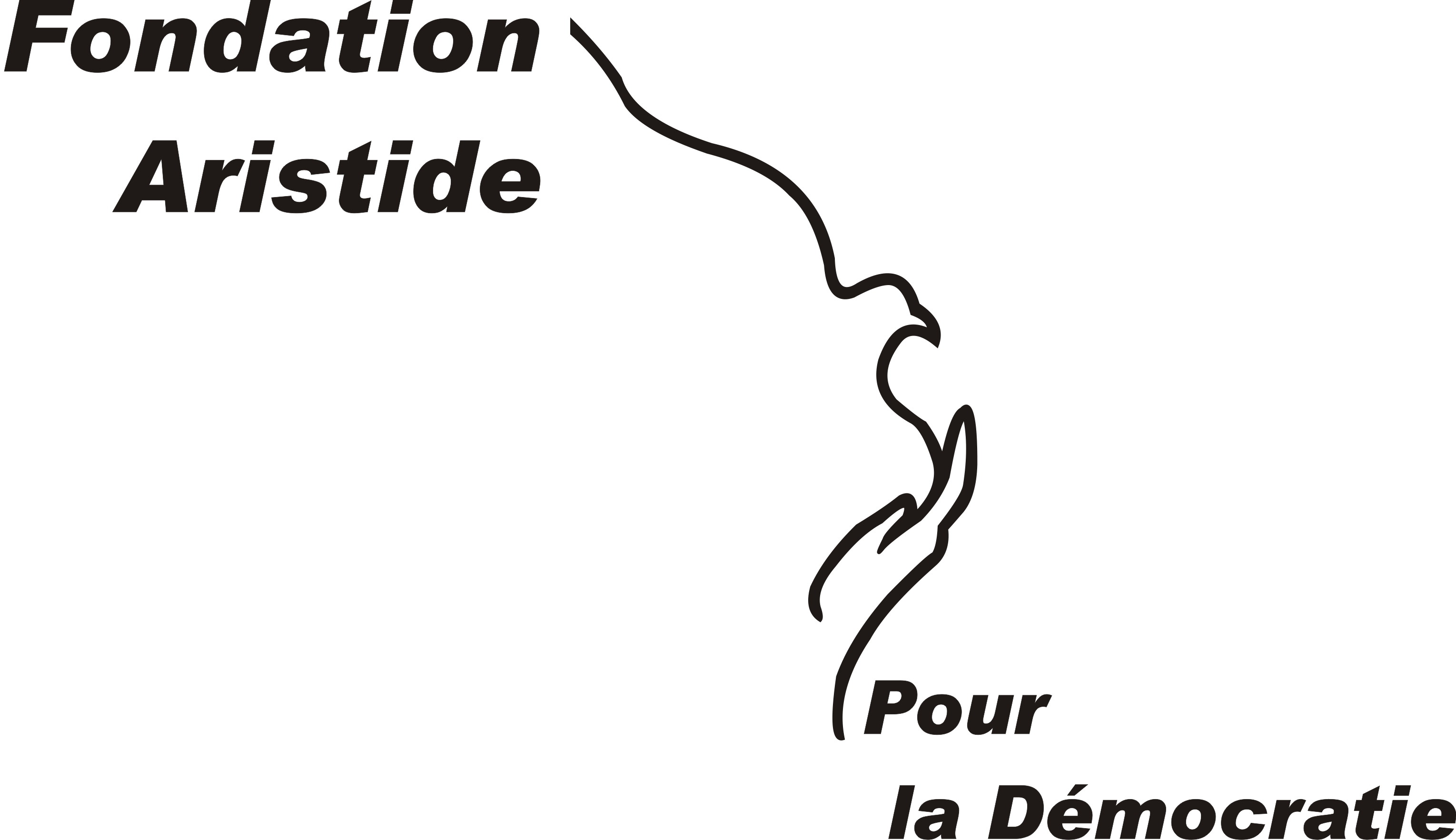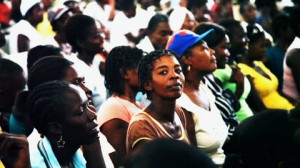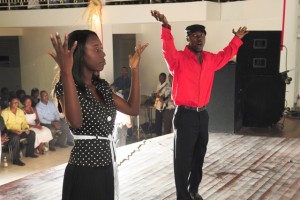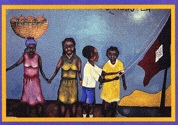Honoring Haiti’s Mothers and the late Father Gérard Jean-Juste
Please join us in honoring Haiti’s mothers!
In solidarity with Haiti’s Mother’s Day, and in memory of the late Father Gérard Jean-Juste, a Mobile Clinic was held at the Aristide Foundation for Democracy this past weekend. Medical and nursing students from UNIFA, the University of the Aristide Foundation, assisted doctors in performing medical exams for the hundreds of women seeking medical care that day. Father Gérard Jean-Juste, who died eight years ago on May 27, 2009, courageously dedicated his life fighting for human rights and social justice on behalf of Haiti’s poor and refugees.
Haitian mothers are like all mothers everywhere. They want their children to be healthy, go to school, grow up and have jobs and happy, healthy families of their own. In sum, they want their children to thrive and have dignity and respect in their society.
These are, after all, human rights as embodied in Haiti’s Constitution, the United Nations Convention on the Rights of the Child, and the United Nations Millennium Declaration (Sept. 2000) that states in its section on Freedom that
“Men and women have the right to live their lives and raise their children in dignity, free from hunger and from the fear of violence, oppression or injustice.”
However, the number of doctors in Haiti remains woefully inadequate with less than two doctors per 10,000 habitants. Infant and child mortality remains high and women die in childbirth at a rate of twenty-five times higher than women in the U.S. In most rural areas nurses are the primary health care provider. Only approximately twenty-five dentists are graduated each year throughout the whole country and until UNIFA created the first degree program in physical therapy, there were no higher education Haiti trained physical therapists. The 2010 catastrophic earthquake made evident how critical this field is but to date many hospitals in Haiti don’t have units for physical therapy.
When former President Jean-Bertrand Aristide returned to Haiti in 2011, he was determined to reopen his university to continue to carry out his vision and commitment to provide a human-rights based model of education as the building block for effective change in Haiti.
UNIFA, the university of the Aristide Foundation, is unique with its emphasis on human rights, dignity, and inclusiveness as the path to a new and just Haiti. (See UNIFA’s Guiding Principles.) In amplifying her husband’s emphasis on dignity, Mildred Aristide framed the importance of dignity to the future of Haiti as,
“…resistance is bound to a powerful will to affirm a shared humanity rooted in dignity…This notion of dignity embraces self-determination. People as subject and never object of their history.”
UNIFA works on all these fronts. To provide a quality, higher education to all qualified students without exclusion, UNIFA’s tuition is much less than other private universities and is able to draw students from throughout Haiti because of its dormitory that currently houses sixty students. UNIFA is a fully accredited Haitian university offering degrees in seven disciplines: Medicine, Law, Nursing, Physical Therapy, Dentistry, Engineering and Continuing Education and currently has 1,300 matriculated students studying at its Tabarre campus in Haiti. Adhering to the State prescribed curriculum and educational requirements, UNIFA supplements course work with additional classes and lectures utilizing its own prominent professors as well as visiting local or foreign professors and experts, including Cuban doctors, who share different approaches and experiences.
“Students gain their own perspective and state of mind. UNIFA provides excellence in education and a safe space for learning where students can think about issues confronting Haiti and seek solutions that they will ultimately contribute to resolve,” Mrs. Aristide explains.
UNIFA is a stepping-stone for Haiti, where professionals are trained inside Haiti and students can control their own destiny and forge their own future. Through community service, participation in mobile clinics, gaining practical experience in clinics and hospitals, students build relationships in the professional world before they graduate and get to see the whole range of possible work in the medical field, including research and other specialties.
Moving UNIFA and a new Haiti forward each year! The first class of UNIFA law students will graduate this September. Sixth-year medical students are doing internships at state and Partners in Health hospitals in Delmas, Mirabalais and Gonaives. Fifth-year medical students are gaining practical experience at the Hospital Bernard Mevs. UNIFA’s nursing students are gaining practical experience in clinics and hospitals throughout the Port-au-Prince area. Physical therapy students are in their third year and UNIFA hopes to offer a masters program in physical therapy in the near future. As of March 2017 the construction of the anatomy lab building was completed and is being used to practice dissection. The cafeteria will be moving into a new modern structure. UNIFA’s engaging Thursday lecture series are very successful and the annual Science Week held in May enjoyed guest lecturers from diverse fields who discussed proactively the realities of emergencies and disasters facing Haiti.
UNIFA’s Campaign for Dignity. Next UNIFA needs to complete its construction of its Diagnostic & Primary Care Center so students can get the full range of practical experience while also serving families living in this growing region. It is the first component of UNIFA’s teaching hospital. As Dr. Paul Farmer, of Partners in Health, who teaches at UNIFA and serves as the President of our not-for-profit explains, “You can’t teach medical education without a hospital.”
UNIFA needs your help to get this done. Once the construction of the Diagnostic & Primary Care Center is completed it will need staff, furnishings, medical equipment, and operating costs. UNIFA dental students will need dental chairs and physical therapy students will need beds. Until the teaching hospital is built, patients needing more advanced care or surgery will be received by the Hospital Bernard Mevs, UNIFA’s partner organization.
Let’s honor Haiti’s mothers together. Please help UNIFA build a new Haiti. Help UNIFA construct its Diagnostic & Primary Care Center, the first phase of its teaching hospital.
